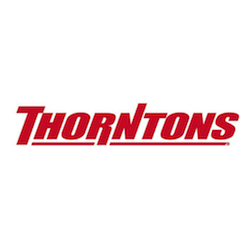by Kristen Cloud/staff writer
Ted Mason, executive director of the Kentucky Grocers Association and Kentucky Association of Convenience (KGA/KACS), isn’t hearing much from the group’s members these days, and that’s not necessarily a bad thing. In fact, Mason considers the relative silence a positive sign that Kentucky’s economy, specifically its retail industry, is on the mend.

“Normally when things aren’t going so well you’ll hear about sales not being good, and rightfully so,” he tells The Shelby Report. “Right now, Kentucky’s economy does seem to be recovering, and the stores that I talk to are pretty upbeat.”
Kentucky’s unemployment rate of 5.1 percent is among the lowest it’s been in at least the last decade; the state also expects to see economic growth, though modest, throughout the rest of the year.
Investments in the state by some big players are, perhaps, reflective of the renewed confidence in the marketplace.
Kroger opens largest Kentucky store
Kroger opened its largest Kentucky store on July 16 in Versailles. The 133,000-s.f. Kroger Marketplace at 212 Kroger Way replaced a nearby 80,000-s.f. Kroger store. The move created 150 new jobs, with the new store employing more than 300 people. The store is led by manager Chuck Osbourn.
The new store offers expanded varieties of produce, organic, meat, seafood and deli. Specialty departments include a Nature’s Market health food section, Starbucks, Boar’s Head meats and cheeses, Murray’s Cheese Shop, apparel, home décor, bed and bath items, Kitchen Place, office and school supplies, toy department, Baby World, The Bistro, soup and salad bar, fresh sushi, beverage bar, floral shop, Little Clinic and a drive-thru pharmacy.
The Versailles Marketplace store is about 8,000 s.f. larger than other area Marketplace outlets, such as the Beaumont and Richmond Road locations in Lexington, according to reports.
In addition, the Versailles store features alongside it, at 328 Kroger Way, a 5,000-s.f. full-service Wine & Spirits Shoppe. The shop offers 600 varieties of wine from around the world, 400 varieties of spirits and a select variety of import and craft beers. Growlers are available for customers to fill with their favorite beer to take home.
The shop is managed by Bull Howard and is open seven days a week. There also are free wine and spirits tastings each week.
Sale of wine at grocery stores still an issue
Stores like the new Kroger Marketplace in Versailles currently cannot sell wine since they sell more than 10 percent groceries. That’s why, to sell wine and spirits, it builds its adjacent Wine & Spirits Shoppes.
“As long as grocers like Kroger have a separate entrance and separate facility, they can sell wine. So the Trade Joe’s, the Krogers, the Meijers—they have separate entrances to a separate facility,” says Mason, adding that the sale of wine at food retail stores is “still much desired by consumers, and the retailers naturally like to be able to provide consumers with that option.”
“It’s the biggest request we hear—‘Where’s the wine?’ It’s kind of become our mantra,” he says.
In 2012, U.S. District Judge John Heyburn overturned the Kentucky ban, but appeals prevented the law from ever taking effect. In 2014, a federal appeals court upheld the ban on wine and spirit sales at grocery stores.
“We just want the ability, like in all of our seven border states now, to give consumers the convenience of shopping for their wine selections as they shop for their groceries,” says Mason.
Opponents of lifting the ban argue that selling wine at grocery could put liquor stores and mom-and-pop shops out of business.
Thorntons expanding its Louisville headquarters
In addition to Kroger’s $24 million Versailles Marketplace project, Louisville-based convenience store operator Thorntons said July 30 that it plans to expand its headquarters with a move to a larger facility.
 The nearly $28 million expansion will see Thorntons relocate from its current 46,000-s.f. facility to a new 92,500-s.f. store support center on Old Henry Road with construction expected to begin later this year. The move will create 100 new jobs, according to the company.
The nearly $28 million expansion will see Thorntons relocate from its current 46,000-s.f. facility to a new 92,500-s.f. store support center on Old Henry Road with construction expected to begin later this year. The move will create 100 new jobs, according to the company.
“We are proud to call Louisville our hometown, and we’re excited about expanding our Store Support Center in Louisville,” says Thorntons CEO Matt Thornton in a statement. “The Louisville community has been very good to us over the years and we couldn’t think of a better place from which to grow our business.”
Family-owned Thorntons operates 182 convenience stores in six states.
While Thorntons, which “over the last year or so has been rolling out a nice new format,” focusing on fresh foods and more healthy offerings, according to Mason, other convenience stores operators also are revamping their stores in Kentucky.
“Speedway seems to be on a path of tearing down some stores and completely rebuilding,” says Mason. “Clark’s Pump-N-Stop (based in Westwood) is doing a lot of nice new work, too.”
Internet lottery implementation a concern for c-store industry
While many convenience store operators are making investments in the state, they also are worried about the impact of internet lottery sales that are expected to begin later this year.
“There’s so much tied to that lottery player who comes in to purchase lottery tickets,” says Mason. “They make additional purchases inside the store. If that foot traffic diminishes due to the ability to purchase tickets online, that’s quite the concern long-term—that people will turn to that and not engage in physical store lottery sales.”
Kentucky’s internet lottery, being implemented by the Kentucky Lottery Corp., will allow players to purchase popular games like Mega Millions and Power Ball via a computer, tablet or mobile device using a debit or credit card. Brick-and-mortar stores in Kentucky only accept cash for lottery tickets, and Kentucky pays a 5 percent commission to the Kentucky Lottery on those sales.
“The lottery is not having to pay 5 percent commission to anybody,” says Mason. “It’s their own sales so, in effect, the retailers feel that they’re competing with the Lottery. The retailers’ position is that over the years, since the lottery was established, we are the ones that built the lottery.”
Despite the concerns of brick-and-mortar stores, the Kentucky Lottery says its research shows that internet lottery sales in other states have been small and have not hindered retailers, which have continued to increase their lottery sales.
States like Georgia, Illinois and Michigan also have internet lottery sales.
During a meeting July 28, Kentucky Lottery officials assured those concerned with the internet lottery that “they intend to grow both the physical brick-and-mortar stores’ lottery sales and the online revenue—grow the entire pie for everybody,” according to Mason, adding that there’s been “good dialogue, good communication” between the industry and the Kentucky Lottery Corp.
Still, notes Mason, “there’s not a whole lot we can do at this point on the lottery issue, so we’re just going to wait and see what happens.”
In late June, however, bipartisan legislation was introduced by U.S. Sens. Lindsey Graham (R-South Carolina), Dianne Feinstein (D-California), Kelly Ayotte (R-New Hampshire), Mike Lee (R-Utah), Marco Rubio (R-Florida), Dan Coats (R-Indiana) and Thom Tillis (R-North Carolina), that would end online lotteries.
Senate Bill 1668, the Restoration of America’s Wire Act, would restore the long-standing interpretation of the Wire Act, which would:
• Return the Wire Act to where it was in 2011 before the Department of Justice reinterpreted the long-standing statute;
• Not affect traditional, retail store lottery sales; and
• Not affect gaming establishments in states where gaming was legal prior to 2011.
In addition to KGA/KACS, the National Association of Convenience Stores supports the legislation.
Upcoming KGA/KACS luncheon
The Kentucky Grocers Association and Kentucky Convenience Store Association (KGA/KACS) will host its 2015 Industry Awards Luncheon on Oct. 28 at Buffalo Trace Distillery in Frankfort.
A board meeting will begin at 9 a.m. followed by the luncheon at noon, when KGA/KACS will recognize its 2015 Grocer of the Year and 2015 Convenience Store of the Year. Attendees can enjoy a hard-hat tour of the distillery after lunch.
Buffalo Trace Distillery, one of the world’s premier distilling operations, recently made headlines after nine people—including two of its employees—were indicted in April on charges of engaging in organized crime as members of a criminal syndicate for stealing tens of thousands of dollars’ worth of bourbon whiskey, much of which came from Buffalo Trace during a 2013 theft. That included pricey Pappy Van Winkle bourbon, which is made at the Buffalo Trace Distillery using a Van Winkle family recipe that dates back to the 1800s.
•••
Kentucky Expands SNAP Distribution Period From 10 To 19 Days
Kentucky is expanding its Supplemental Nutrition Assistance Program (SNAP) distribution period from 10 to 19 days. The transition is being made over the months of August and September.
Mason tells The Shelby Report that the distribution period in the Bluegrass State has been 10 days for as long as he can remember and that the expanded schedule should allow food retailers to better serve all their customers.
“The biggest benefit that we see is being able to even out the labor scheduling for stores,” says Mason. With the 10-day distribution, “it’s hard to manage when you have such a boost in sales near the first of the month. It’s hard to keep employees at the needed payroll and service levels and maintain good store stock and quality throughout the month.”
In 2014, Kentucky had $1.1 billion in SNAP disbursements. From January through June of this year, the state distributed $672 million in SNAP benefits.
“While this change has taken longer than expected, retailers will be able to accommodate SNAP clients and all shoppers with better store staffing, improved grocery inventory management and by maintaining fresher stocks of perishable items throughout the month,” adds Mason.
Retailer SNAP Violations Can Be Costly
by Randall Strause/Special to The Shelby Report

The Supplemental Nutrition Assistance Program (SNAP), commonly referred to as the food stamp program, provides monthly benefits to qualifying low-income households that need assistance in order to have a healthy diet. The Food and Nutrition Service (FNS) of the U.S. Department of Agriculture (USDA) administers and enforces the laws and regulations governing this program, and it does so vigorously. Any violation by a retailer or “firm” usually results in severe sanctions that include disqualification from SNAP and/or a monetary penalty, and possibly criminal prosecution. This article provides information on avoiding FNS compliance issues along with actions to take if you receive a “charge letter” from the FNS. The Kentucky Grocers Association/Kentucky Association of Convenience Stores is often the first call retailers make when receiving one of these letters.
A firm is legally responsible for all of the actions of any of its employees, regardless if the firm had knowledge of the violation or not. FNS requires strict compliance with the regulations and does not tolerate abuse by participating firms. There are various types of violations that a firm could engage in and then subject themselves to sanctions such as: trafficking (the buying or selling of SNAP benefits for cash or other items); sale of non-food and/or ineligible items; SNAP benefit redemptions exceeding food sales; and accepting SNAP benefits without prior authorizations from FNS. These violations can result in permanent disqualification from the program, disqualification from the program for a specified period and/or the imposition of a civil monetary penalty. Another adverse consequence of a violation is that it could also result in a disqualification from the Special Supplemental Nutrition Program for Women, Infants and Children (WIC).
The most obvious advice in order to avoid FNS imposing sanctions is to not engage in any behavior that would constitute a violation; however, such advice is unrealistic because it is difficult to ensure that all employees are always in compliance. Since compliance can be difficult, it is important to properly train your employees in the first place, monitor their performance, conduct refresher courses and stay current with any program changes. While developing and instituting an effective personnel training program is important, it is of equal importance that you keep detailed and organized records. The records should include the dated training curricula, dates of conducted training sessions, complete employment records that include dates of employment and completion by employee of initial training program and refresher programs. Such records can become invaluable if FNS does find that a firm has committed a violation and may greatly reduce the type and amount of a sanction imposed.
The reason why FNS imposes such harsh sanctions on firms that commit violations is because it views its role in the strict enforcement of these regulations as protecting a multi-billion-dollar investment by American taxpayers. Because of this view, aggressive enforcement of SNAP is unavoidable, and therefore it is the responsibility of participating firms to understand what compliance entails and to protect themselves to the fullest extent possible.
What to do if your store receives a ‘charge letter’ from FNS
If your company has received a “charge letter” from the FNS, you should immediately take action on the letter. Do not expect this issue to simply go away. There have been instances of retailers not responding to the letter and, a few weeks or months later, they receive notice they are being removed from SNAP. A charge letter, pursuant to 7 C.F.R. §278.6(b), sets forth the violations of SNAP the FNS alleges your firm committed and provides evidence supporting those allegations, such as Electronic Benefit Transfer (EBT) transaction records. A store is entitled to respond to these allegations within 10 days of receipt of the charge letter before the FNS can make a final determination. This 10-day period is crucial in the defense against a SNAP violation. The complex nature of the regulations governing this program can make an appropriate response to these allegations difficult. Many cases will require an attorney becoming involved immediately to prepare an effective response to these allegations and protect your company’s interests.
Once FNS has made a final determination, it can impose sanctions that range from a firm’s permanent disqualification from SNAP, disqualification for a determined period of time and/or a civil monetary penalty (CMP). In addition to these sanctions, if a firm is disqualified from SNAP, the firm will likely be disqualified from the WIC program. These sanctions in conjunction with the likely disqualification from WIC will result in a substantial loss of revenue. If your store were to be disqualified from SNAP, or both SNAP and WIC, would your company be able to remain in business?
Administrative review (hearing)
The final determination of FNS is subject to administrative review before a reviewer designated by the secretary in a trial-like hearing. These hearings are actually high-stake proceedings and should involve legal counsel for the retailer. Retailers should make sure their attorney has the specialized knowledge and experience in defending their business during the administrative review process. While the goal is to overturn any imposed sanction, including disqualification, possible appropriate outcomes could be having a more reasonable CMP amount imposed or, if facing disqualification, demonstrate that the firm’s disqualification would cause “hardship” to food stamp households.
Time is of the essence in defending against allegations of SNAP violations. Upon receiving a charge letter from the FNS, immediately take action; again, do not ignore this letter. It is also highly recommended that you contact an attorney experienced in SNAP issues to help protect your company’s interests. Retailers attempting to represent themselves can have a significant negative impact on the business.
As part of his law practice, Randall Strause advises clients on employment, contract and government compliance, including SNAP and WIC. He can be reached at
[email protected].
*Editor’s note: This 2015 Kentucky Market Profile also appears in the September print edition of The Shelby Report of the Southeast.






